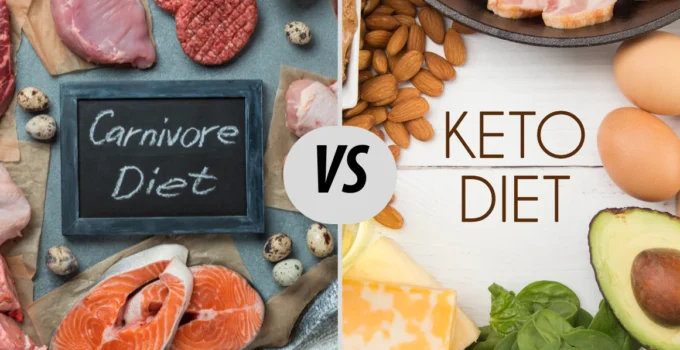The Ketogenic diet and the Carnivore diet are both popular low-carbohydrate diets that have gained traction in recent years. They both share a common goal: to induce Ketosis, a metabolic state in which your body burns fat for energy instead of glucose. While they share some similarities, there are also some key differences between the two diets. In this blog post, we will explore the Keto vs Carnivore diet, comparing and contrasting their principles, foods allowed, and potential benefits and risks.
Page Contents
What is the Carnivore diet?
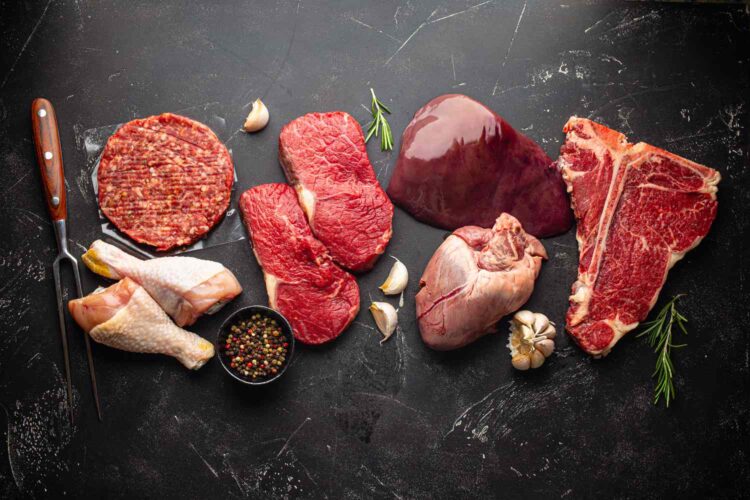
Source: health.com
The Carnivore diet is an extreme, low-carbohydrate, high-fat eating plan centered around animal products, excluding most plant-based foods.
Advocates believe it aligns with human evolutionary history and claim health benefits like weight loss and improved mental clarity. However, its controversial nature and limited scientific evidence raise concerns about potential nutritional deficiencies and health risks, according to critic..
Benefits of the Carnivore diet
The Carnivore diet has gained attention in recent years, and some individuals claim to experience various benefits from following this eating pattern. Here are some reported benefits that proponents of the Carnivore diet claim:
- Weight Loss: Some individuals report significant weight loss when following the Carnivore diet. This may be attributed to a reduction in overall caloric intake and the absence of carbohydrates, which can lead to water weight loss.
- Improved Mental Clarity: Advocates suggest that the Carnivore diet can lead to improved mental focus and clarity. Some attribute this to the elimination of potential irritants found in certain plant foods.
- Increased Energy Levels: Some followers of the Carnivore diet claim to experience increased energy levels and improved endurance. The absence of carbohydrates may shift the body into a state of Ketosis, where it relies on fat for energy.
- Digestive Health: For individuals with certain digestive issues, the Carnivore diet is believed to be easy on the digestive system. Proponents argue that eliminating plant foods can reduce symptoms such as bloating, gas, and gastrointestinal discomfort.
- Reduced Inflammation: Some people claim that the Carnivore diet helps reduce inflammation in the body. This is often attributed to the elimination of potentially inflammatory substances found in certain plant foods.
Side effects of the Carnivore diet
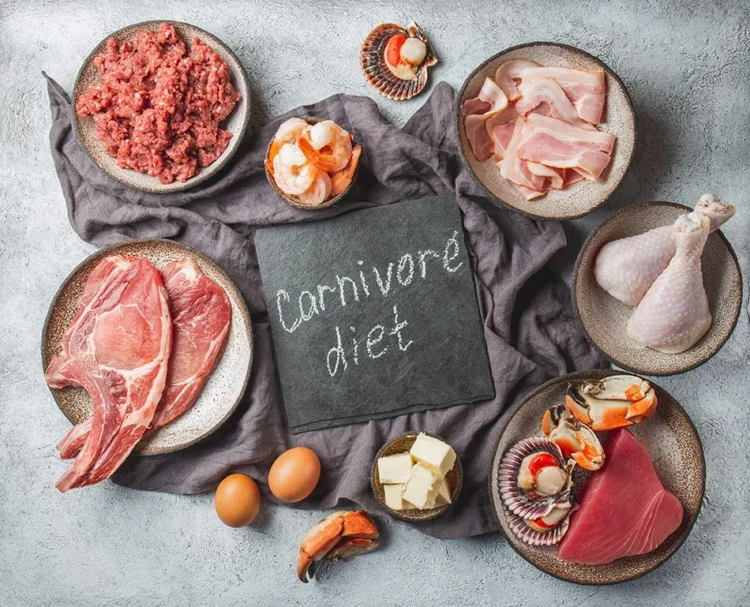
Source: mealplanpros.com
While some individuals report benefits from following the Carnivore diet, there are also potential side effects and risks associated with this eating pattern. It’s essential to be aware of these potential drawbacks:
- Nutritional Deficiencies: Excluding plant foods can lead to deficiencies in essential nutrients such as fiber, vitamins (like vitamin C), minerals (such as potassium), and antioxidants, which are primarily found in fruits, vegetables, and grains.
- Digestive Issues: Some people may experience digestive discomfort, constipation, or other gastrointestinal issues due to the lack of fiber from plant sources, which plays a crucial role in maintaining digestive health.
- Potential Heart Health Risks: The high intake of saturated fats from animal sources in the long term may contribute to an increased risk of heart disease. It’s crucial to choose lean cuts of meat and incorporate a variety of protein sources.
- Ketosis-related Issues: The Carnivore diet may lead to a state of Ketosis, where the body relies on fat for energy. While some see this as a benefit, prolonged Ketosis can lead to Ketoacidosis, a condition associated with high levels of Ketones and potential health risks.
What is the Keto diet?
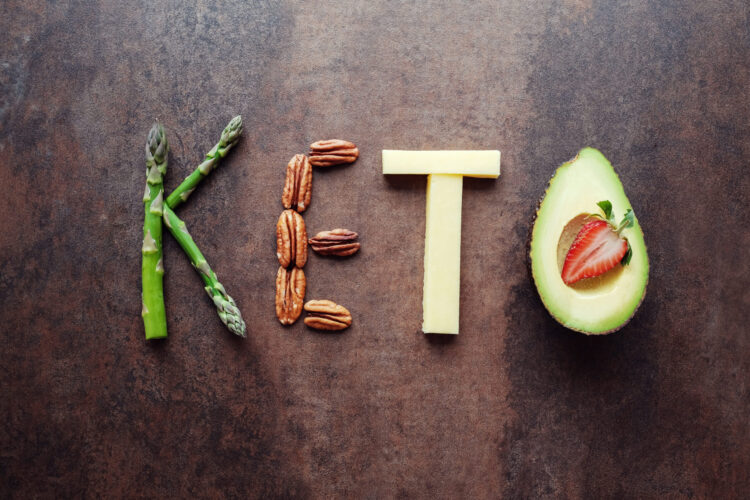
Source: scopeblog.stanford.edu
The Ketogenic (Keto) diet is a low-carbohydrate, high-fat approach designed to induce Ketosis, where the body burns stored fats for energy. By severely limiting carbs and increasing healthy fats, the diet aims to produce Ketones, aiding in weight loss and other potential health benefits. Despite its popularity, concerns include possible nutritional deficiencies and the need for careful monitoring. Consulting healthcare professionals or dietitians is advisable before starting the Keto diet due to limited long-term research on its safety and efficacy.
Benefits of the Keto diet
The Ketogenic (Keto) diet is associated with several potential benefits, although individual experiences may vary. Some reported advantages include:
- Weight Loss: The primary reason many people adopt the Keto diet is for weight loss. By reducing carbohydrate intake and relying on fats for energy, the body may burn stored fat more efficiently.
- Blood Sugar Control: The Keto diet can help regulate blood sugar levels, which may be beneficial for individuals with type 2 diabetes or those at risk of developing insulin resistance.
- Increased Satiety: The higher fat content of the diet may promote a feeling of fullness and reduce overall calorie intake, potentially aiding in appetite control.
- Improved Mental Focus: Some individuals report enhanced mental clarity and focus when in a state of Ketosis, attributing this to the brain’s use of Ketones for energy.
- Potential Cardiovascular Benefits: Some studies suggest that the Keto diet may improve cardiovascular risk factors by reducing triglycerides and increasing HDL cholesterol levels. However, more research is needed to understand these effects fully.
- Epilepsy Management: The Keto diet has a long history of being used to manage epilepsy, particularly in children, when medications are ineffective.
Side effects of the Keto diet

Source: medicalnewstoday.com
While the Ketogenic (Keto) diet has potential benefits, it may also be associated with certain side effects. It’s crucial to be aware of these potential drawbacks:
- Keto Flu: In the initial stages of transitioning into Ketosis, some people may experience symptoms known as the “Keto flu,” including fatigue, headaches, dizziness, nausea, irritability, and constipation. These symptoms are often temporary as the body adjusts.
- Nutritional Deficiencies: Restricting certain food groups, particularly fruits, vegetables, and whole grains, can lead to deficiencies in essential nutrients such as fiber, vitamins, and minerals. Careful planning and supplementation may be necessary.
- Electrolyte Imbalance: The Keto diet can lead to a loss of water weight, potentially resulting in an electrolyte imbalance. This imbalance may contribute to symptoms such as muscle cramps, weakness, and dizziness. Adequate electrolyte intake is essential.
- Digestive Issues: The diet’s low fiber content may contribute to constipation or other digestive issues. It’s important to prioritize low-carb, high-fiber foods and stay hydrated to mitigate these effects.
Keto vs Carnivore
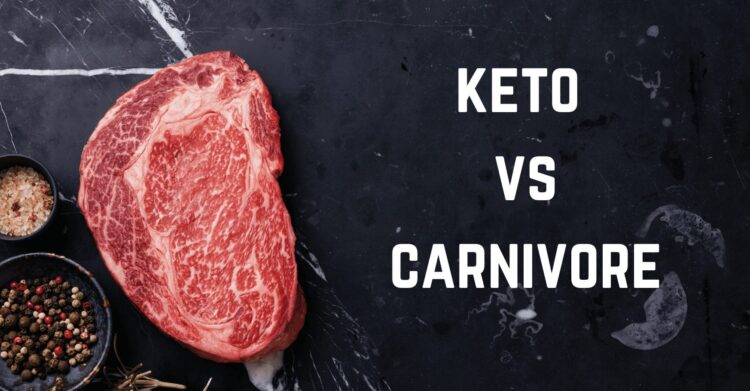
Source: carnivoreaurelius.com
The Ketogenic diet and the Carnivore diet are both restrictive eating patterns that focus on consuming high amounts of fat and limiting carbohydrates. However, there are some key differences between the two diets https://www.theprimal.com/blog/carnivore-diet-vs-keto-diet.
Keto Diet:
- Composition: The Ketogenic (Keto) diet is a low-carbohydrate, high-fat diet designed to induce Ketosis, where the body burns fat for energy.
- Macronutrient Distribution: It includes moderate protein intake along with a higher proportion of fats, aiming to keep carbohydrate intake low.
- Food Variety: The diet allows for a broad range of foods, including low-carb vegetables, nuts, seeds, and dairy.
- Plant Inclusion: While animal products are common, the Keto diet is not exclusive to them; it incorporates both animal and plant-based sources.
Carnivore Diet:
- Composition: The Carnivore diet is an extreme form of a low-carb diet that revolves around animal products, eliminating all plant-based foods.
- Focus on Animal Products: It exclusively centers on animal products such as meat, fish, eggs, and dairy, with zero intake of plant-based foods.
- Zero Carbohydrates from Plants: Unlike Keto, the Carnivore diet strictly avoids any carbohydrates from plant sources.
- Simplicity and Restriction: While simpler in terms of food choices, it is more restrictive, potentially leading to nutrient deficiencies due to the absence of plant-derived nutrients.
Summary
The Keto and Carnivore diets are both restrictive eating patterns that offer potential benefits for weight loss, improved blood sugar control, and reduced inflammation. However, they also differ significantly in their overall approach and potential risks.
The Keto diet allows a broader range of foods, including low-carb vegetables, nuts, and seeds, which provide a more balanced intake of nutrients. It may be a more sustainable option for long-term health and weight management.
On the other hand, the Carnivore diet’s extreme restriction of plant foods raises concerns about nutrient deficiencies, particularly in fiber, vitamins, and minerals. It may be suitable for short-term weight loss or addressing specific health conditions, but its long-term impact on overall health requires further research.

